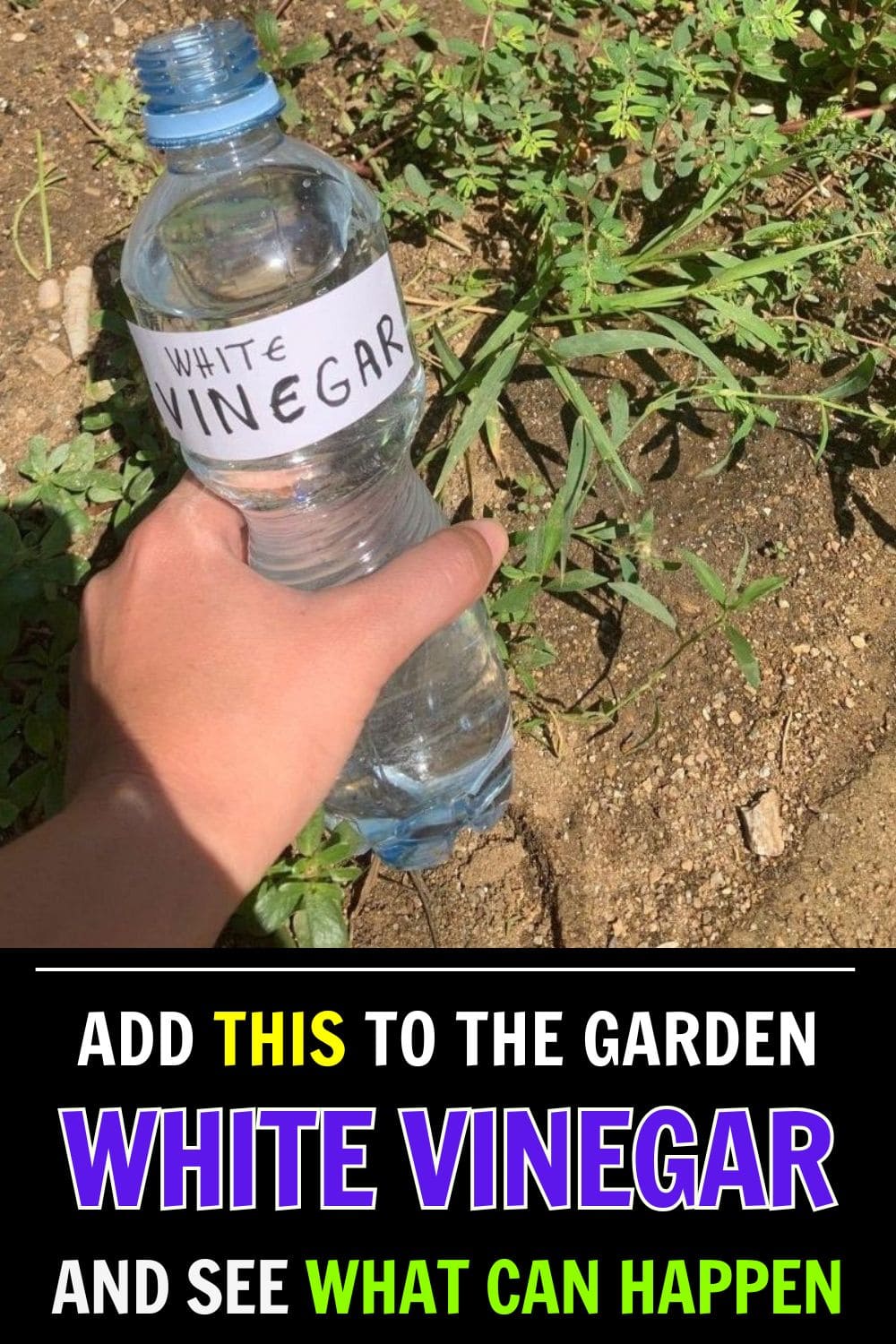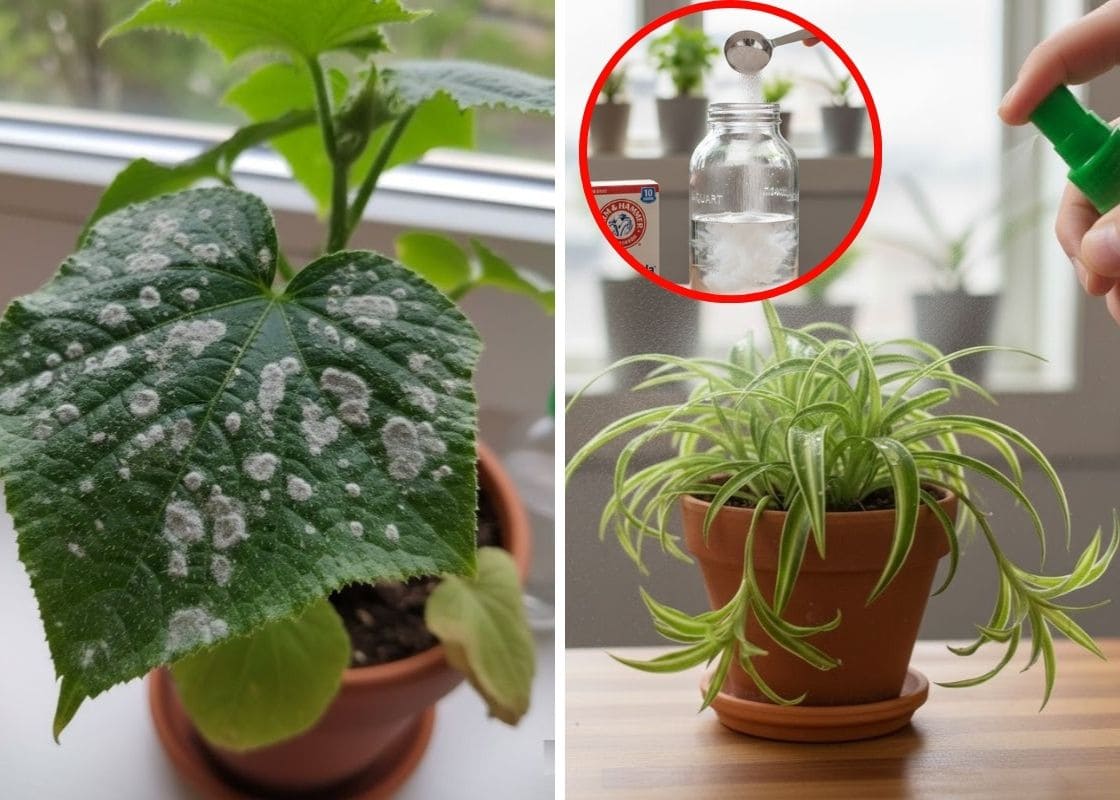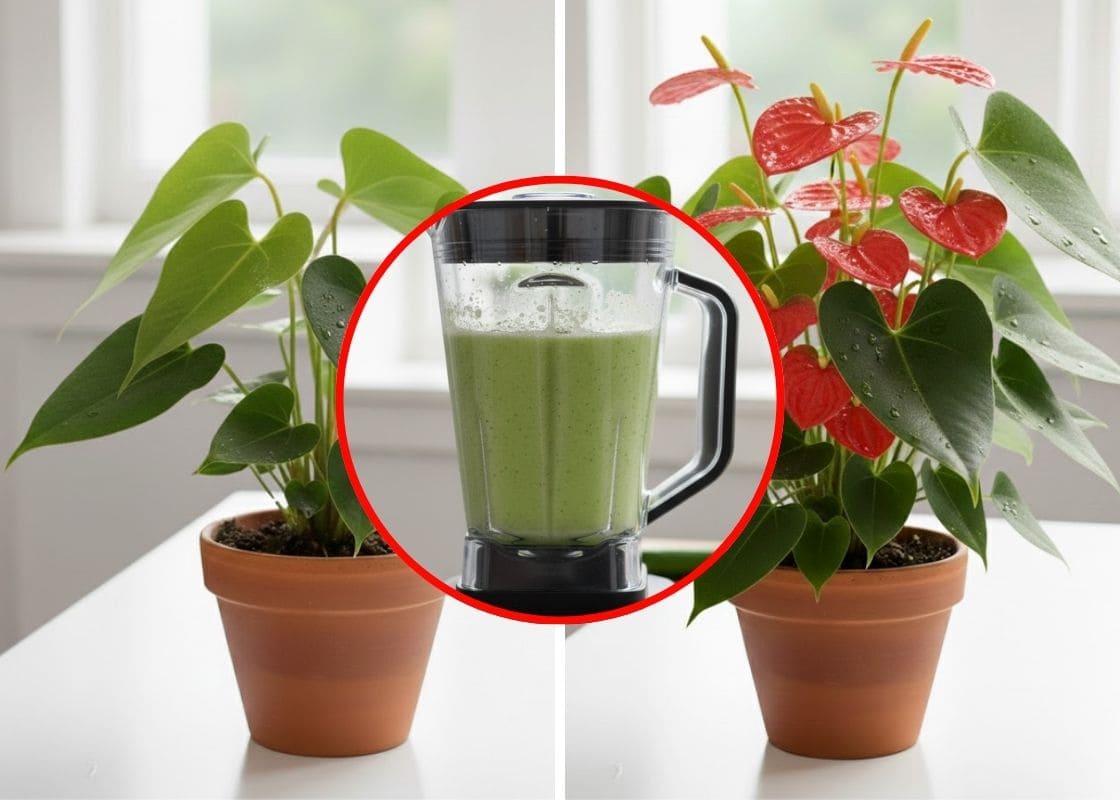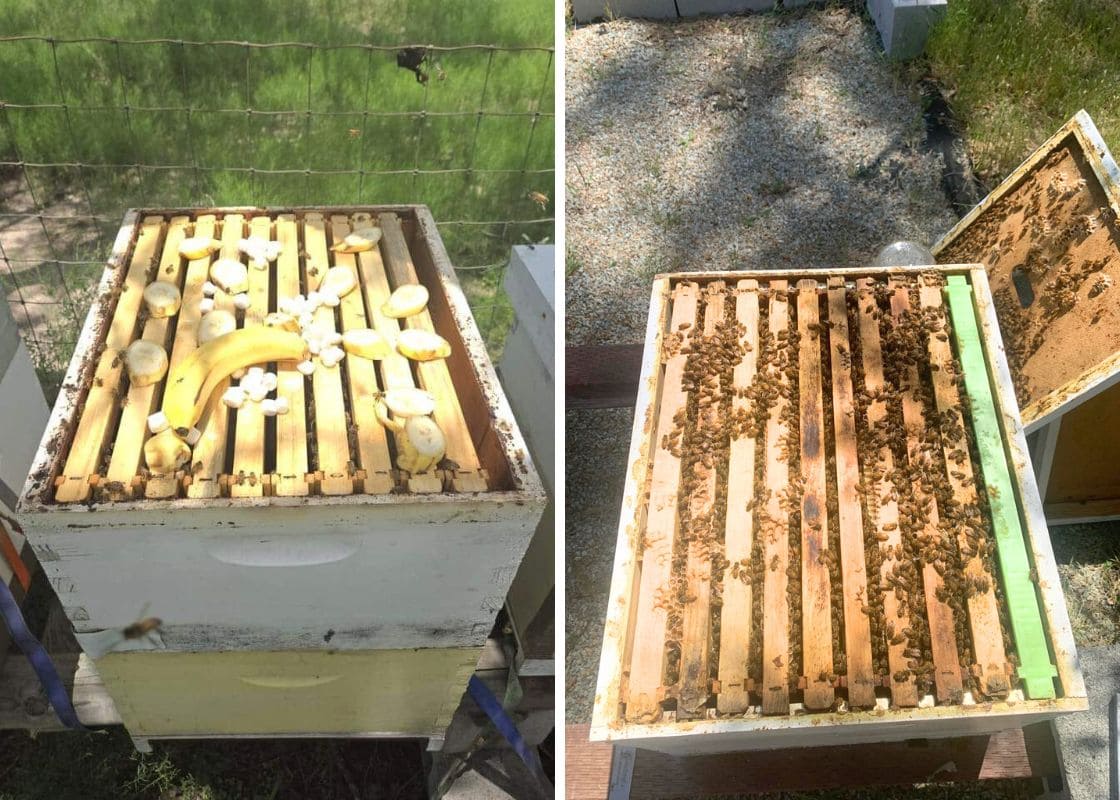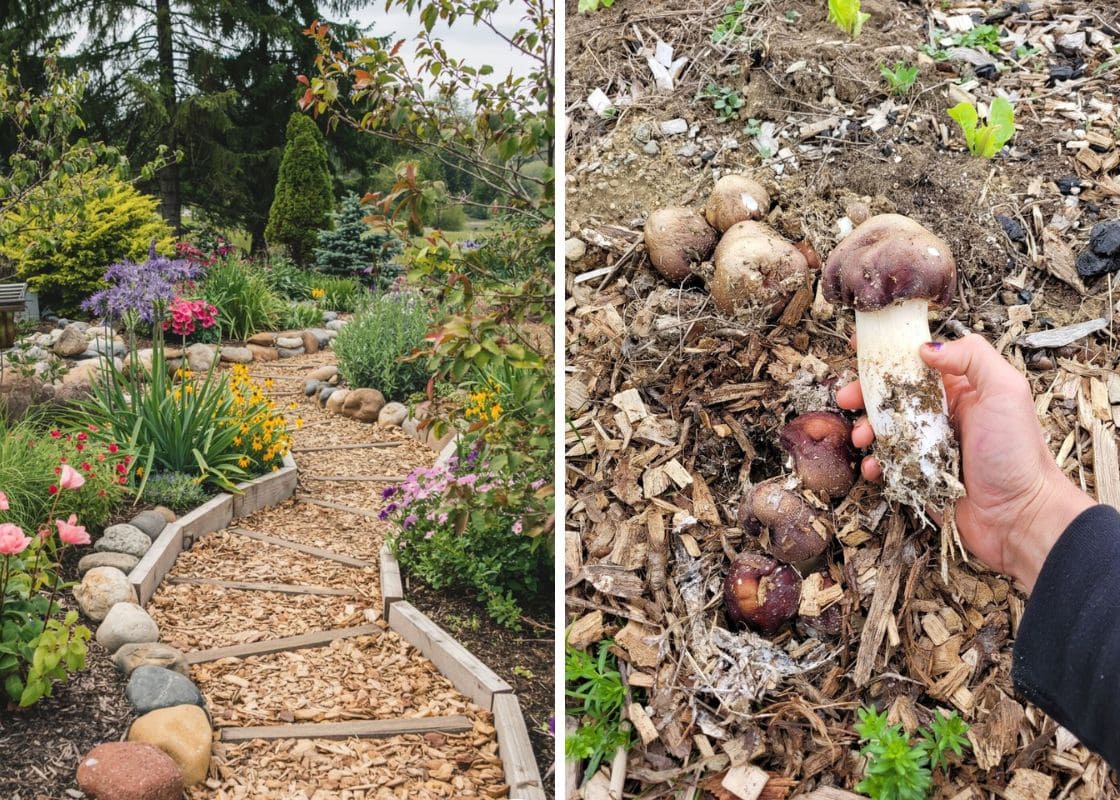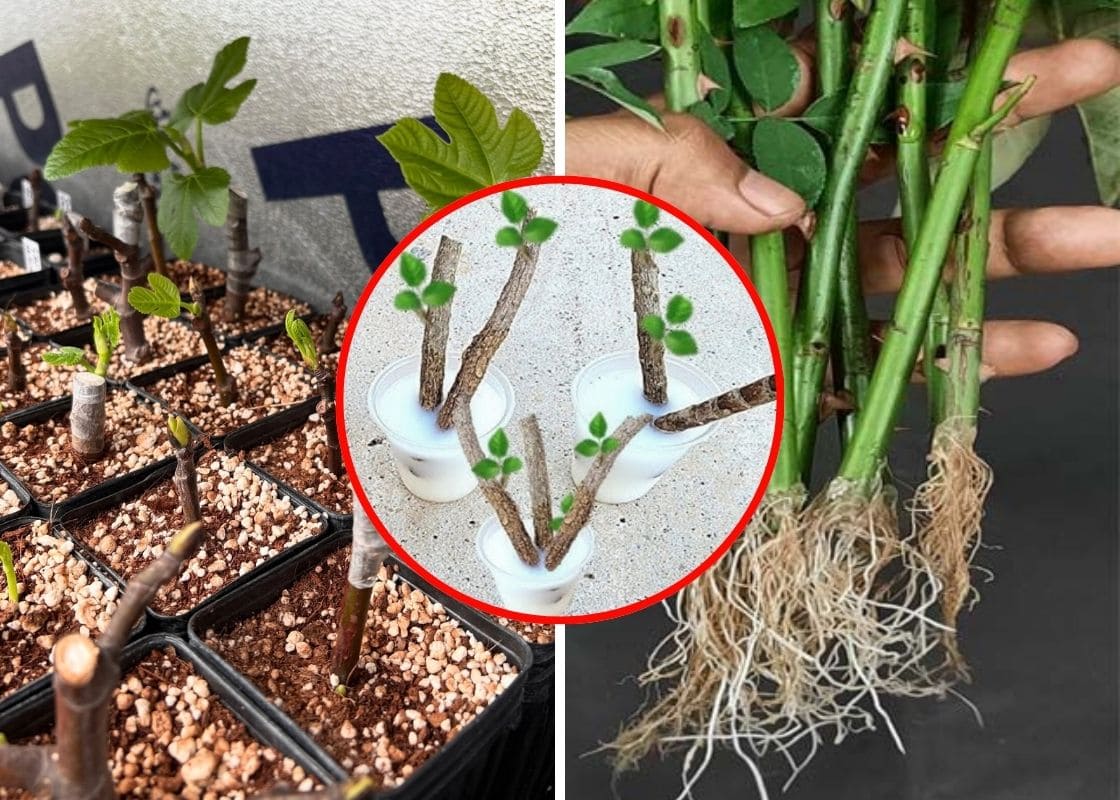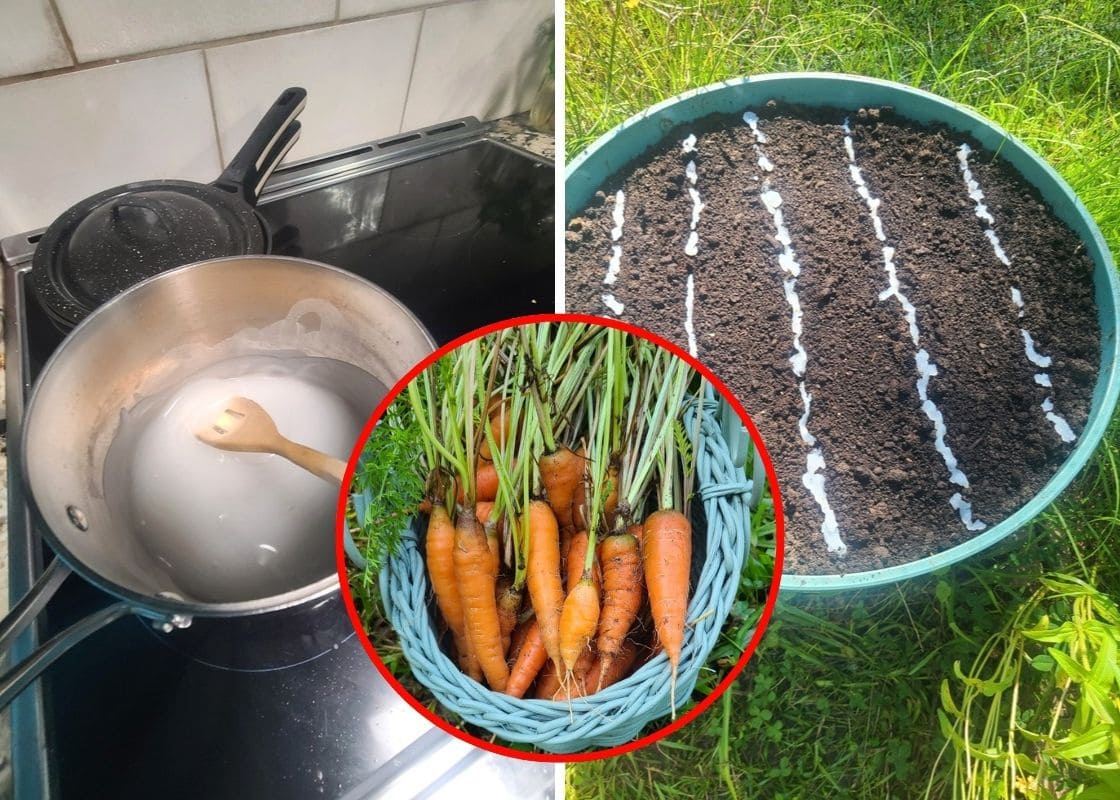Vinegar is one of those pantry staples that gardeners often hear about as a natural solution.
Some swear it’s the best homemade weed killer, while others warn that it can ruin soil and harm plants.
So what’s the truth? The answer lies somewhere in the middle.
Vinegar can be useful in the garden if you understand what it does and how to use it responsibly.
Vinegar as a Natural Weed Killer
One of the most common uses for vinegar outdoors is killing weeds.
Vinegar contains acetic acid, which burns the leaves and soft tissue of plants on contact.
Spray it on a patch of young, shallow-rooted weeds like dandelion seedlings or crabgrass, and you’ll see them wilt within hours.
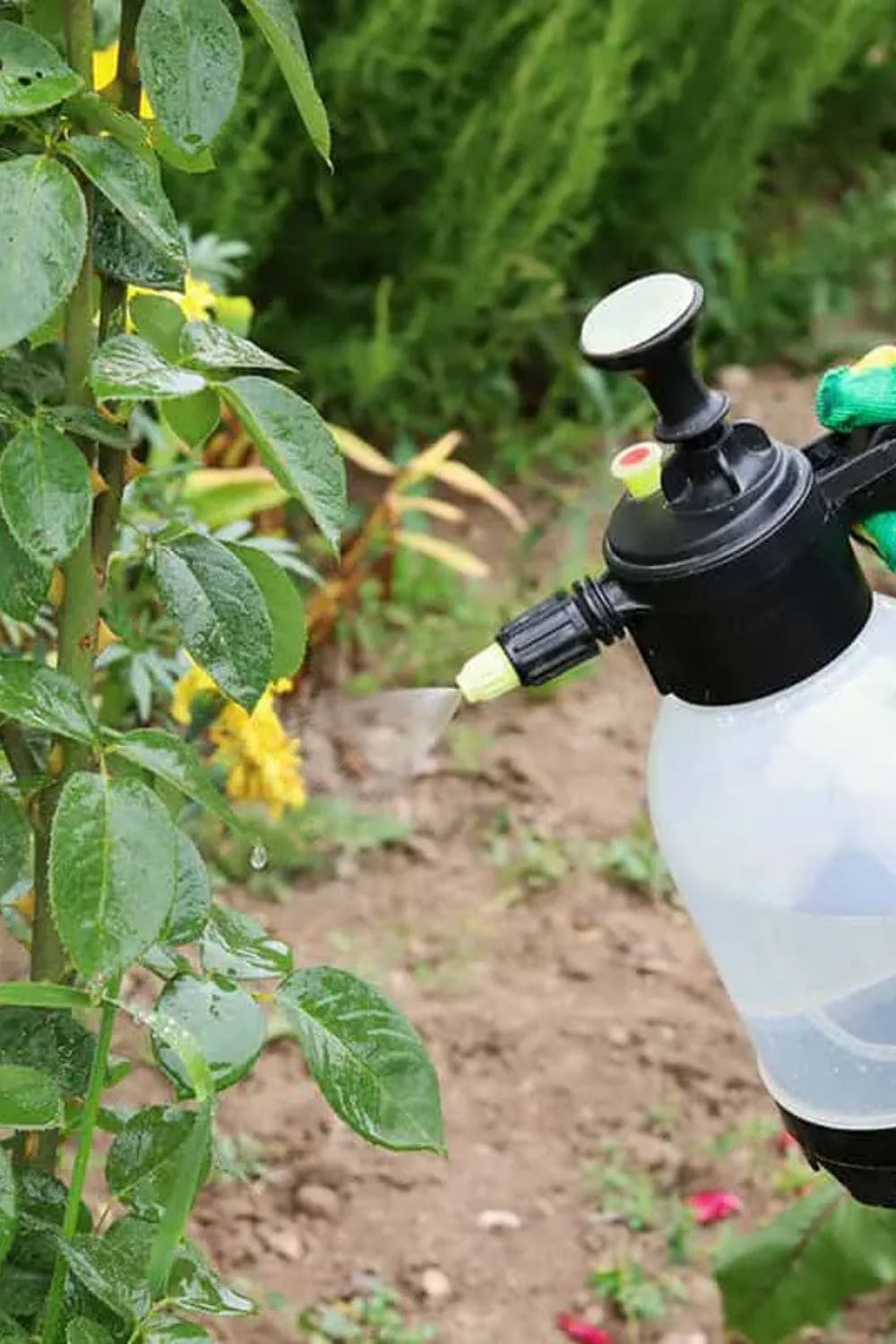
The problem is, vinegar doesn’t reach deep roots. That means tough perennials like bindweed or thistle often bounce back after a few days.
Another risk is that vinegar isn’t selective, it will damage any leaves it touches, including your favorite flowers or vegetables.
If you’re using vinegar as a weed killer, keep it for cracks in sidewalks, patios, or gravel paths where no desirable plants are nearby.
Soil and pH Impact
Vinegar is acidic, which means pouring it on soil will temporarily lower the pH.
For acid-loving plants like blueberries, azaleas, or hydrangeas, some gardeners try watering with a diluted vinegar solution to give them a boost.
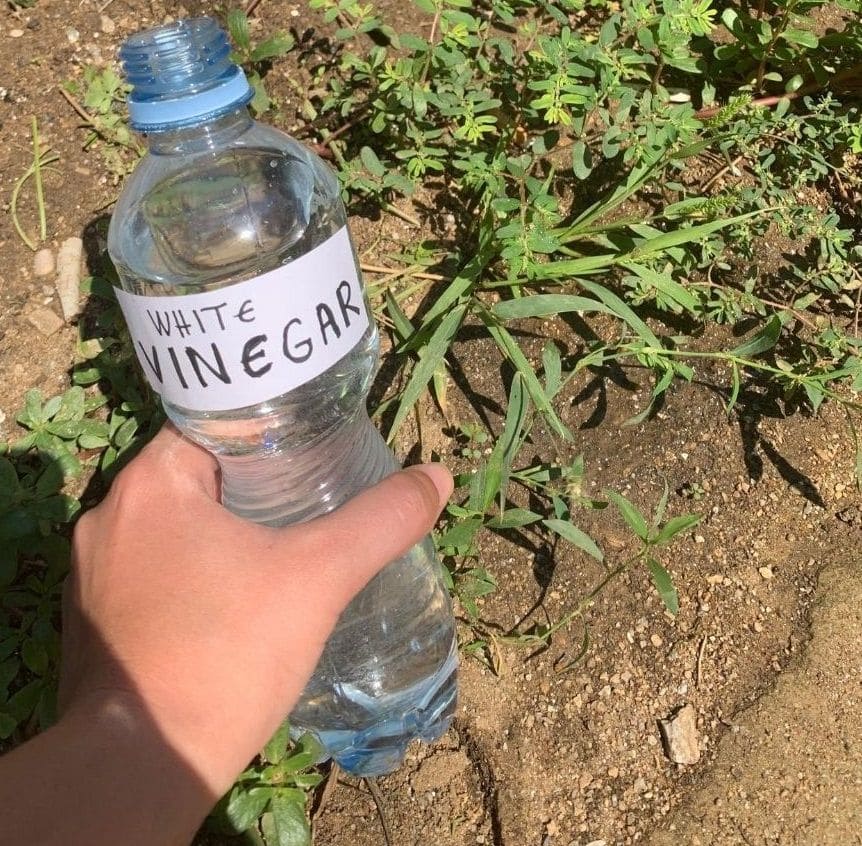
While this might help in the short term, vinegar doesn’t change soil chemistry permanently.
It also risks killing beneficial microbes if used too often, which can disrupt soil health over time.
A better way to support acid-loving plants is by adding organic amendments like pine needles, peat moss, or sulfur rather than relying on vinegar.
Pest Control Uses (and Risks)
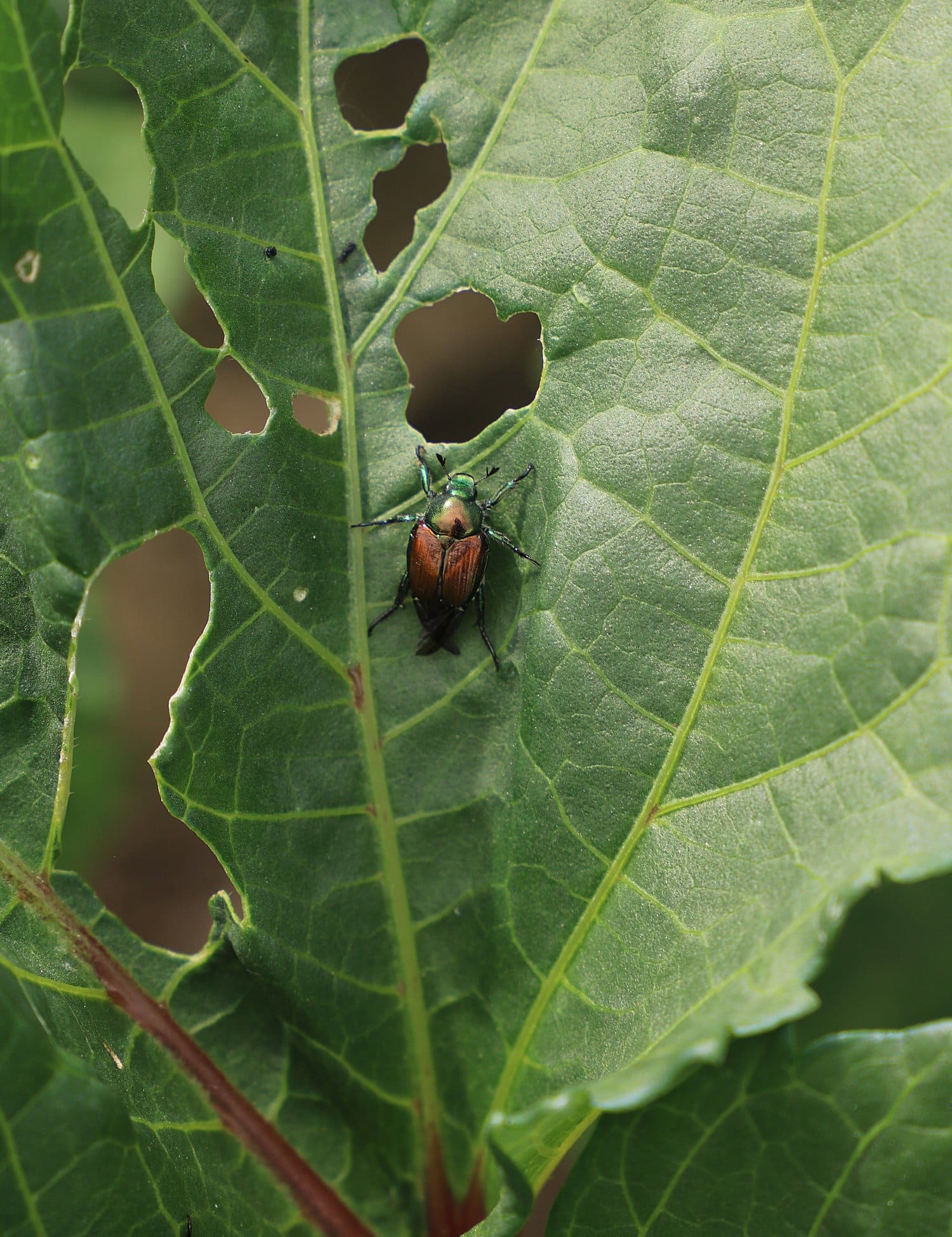
Vinegar is sometimes sprayed as a deterrent for pests like ants, slugs, or even neighborhood cats that like to dig in garden beds.
The sharp smell may repel them temporarily, but it’s rarely a long-term fix.
When sprayed directly on leaves, vinegar can cause burns, leaving your plants looking scorched.
Some people wipe pots or raised bed edges with vinegar to discourage pests from crossing, which is safer.
If you’re dealing with infestations, though, there are usually more effective and plant-friendly methods than vinegar sprays.
Cleaning and Garden Maintenance
Where vinegar truly shines in the garden is as a cleaner.
Hard water often leaves mineral deposits on terracotta pots, saucers, or watering cans, and a vinegar soak can remove them easily.
Garden tools can also be dipped in vinegar to loosen rust before scrubbing.
Birdbaths and feeders can be cleaned with vinegar as a natural alternative to bleach.
Just remember to rinse thoroughly afterward so no acid residue remains when plants, birds, or pets come in contact.
What You Should Never Do With Vinegar
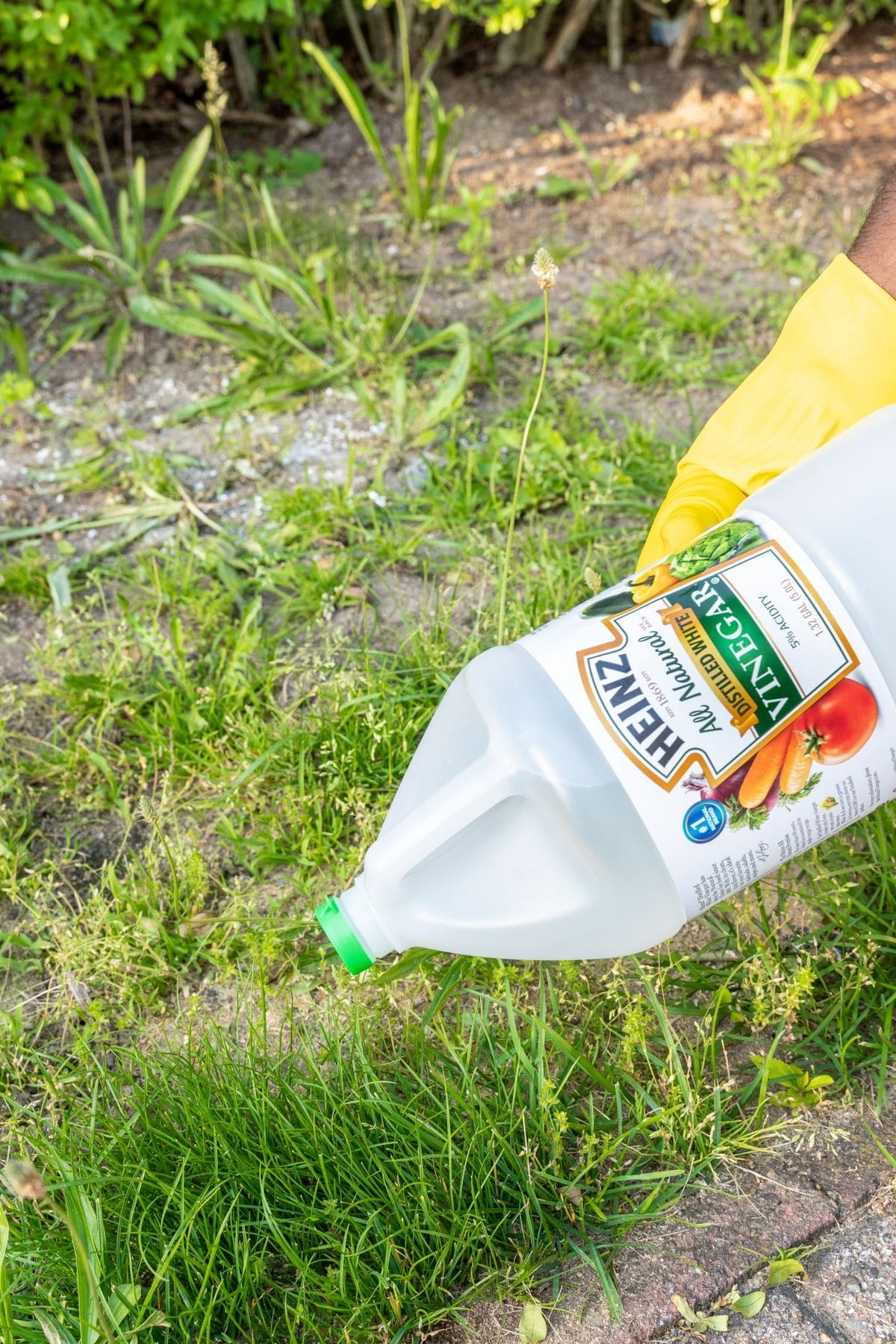
While vinegar has its uses, there are clear don’ts. Never pour vinegar directly into garden beds repeatedly.
This doesn’t just kill weeds; it damages the soil environment your plants depend on.
Avoid spraying vinegar near your lawn unless you’re ready for dead patches.
And don’t experiment with vinegar on seedlings or delicate ornamentals as they’re extremely sensitive and can be destroyed quickly.
Treat vinegar like a strong tool: effective in the right place, destructive in the wrong one.
Safer Ways to Use Vinegar in Gardening
If you want to make vinegar part of your gardening toolkit, think of it as a spot-treatment or cleaner.
Use it on driveway or sidewalk cracks where weeds pop up and where no desirable roots can reach.
A diluted mix (1-2 tablespoons per gallon of water) can be used occasionally to water acid-loving plants, though it’s better as a temporary fix rather than a long-term solution.
And for keeping tools, pots, and even birdbaths sparkling, vinegar is a natural, safe choice as long as you rinse thoroughly afterward.
Read more: Here’s Why Baking Soda Is a Gardener’s Best Companion
